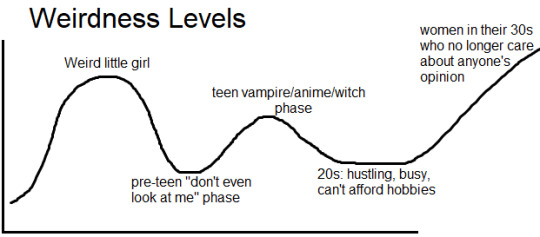Text
So. Today in class we assigned Macbeth roles to students to read. When I asked the class who wants to be Lady Macbeth, a young man raised his hand. I kind of stared at him like “Lady Macbeth,” and he nodded like “I know what I’m about ma’am.” So then the student who ended up as Macbeth raised his hand and said “HE’S THE ONE, HE’S MY WIFE!” So I said “yeah sure why not,” and the entire class period they were blowing kisses to each other and winking at each other, and every now and then Macbeth would say “I’m the luckiest man on Earth” and Lady Macbeth would put a hand to his chest, and be like “BABE!”.
I just stared at them, knowing that they CLEARLY have never read ‘Macbeth’ before, so… all this lovey dovey… I don’t know if I have the heart to tell them the truth.
215K notes
·
View notes
Text
please reblog for sample size!! and tell me specifics in the tags if you like, people's responses are fascinating
9K notes
·
View notes
Text
Azriel in the tunnel following behind Bryce and Nesta trying not to alert Bryce to his presence

1K notes
·
View notes
Text
is it just me or does the way people treat like "dopamine" and "serotonin" in modern pop psych context read exactly like balancing the humors
65K notes
·
View notes
Text
Can I just say , Tharion and Sathia are the prime example of why men need women . Bro made bad decision after bad decision, would have made more bad decisions like blow up those Omega ships if Sathia hadn't stopped him.
Listen to your wife you idiot!!!
139 notes
·
View notes
Photo
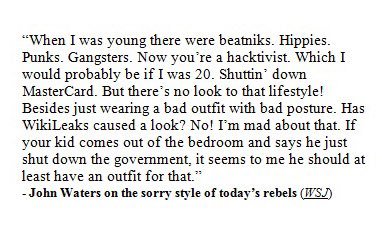

the only criticism of millennials l accept
385K notes
·
View notes
Text

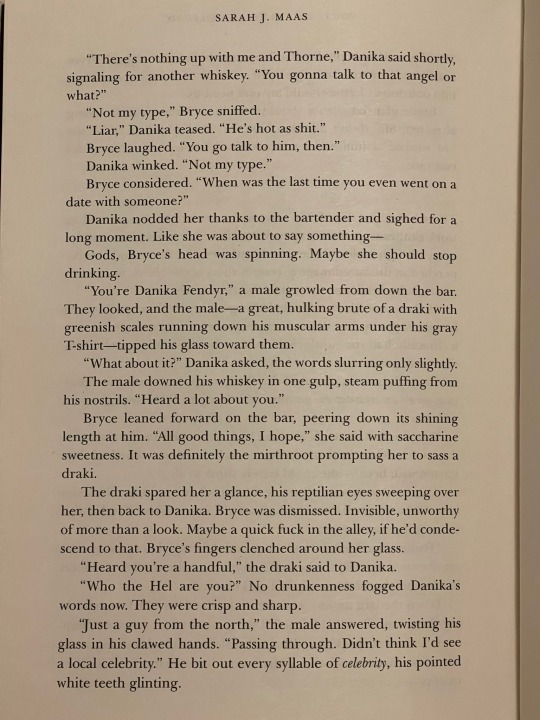
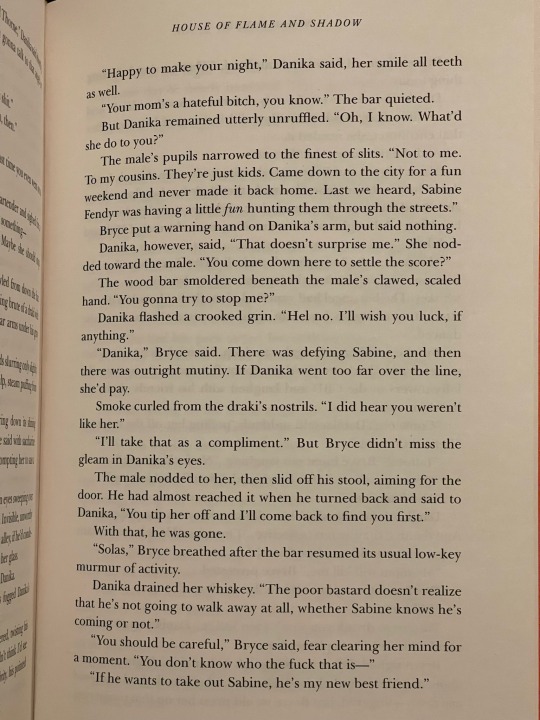
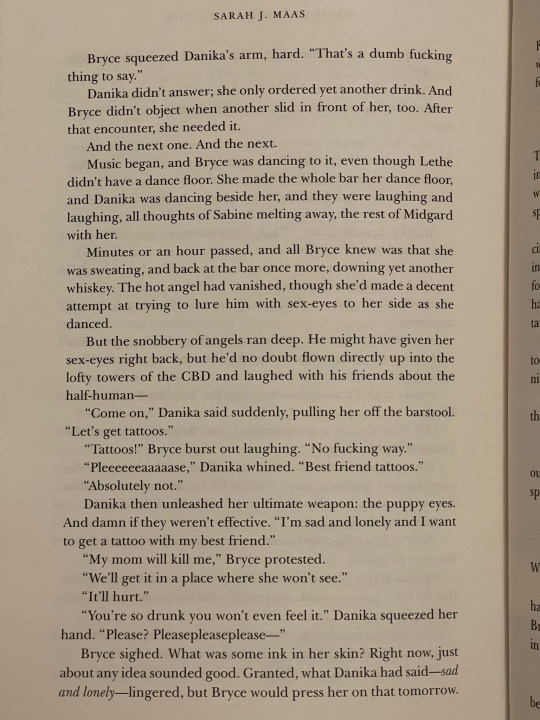
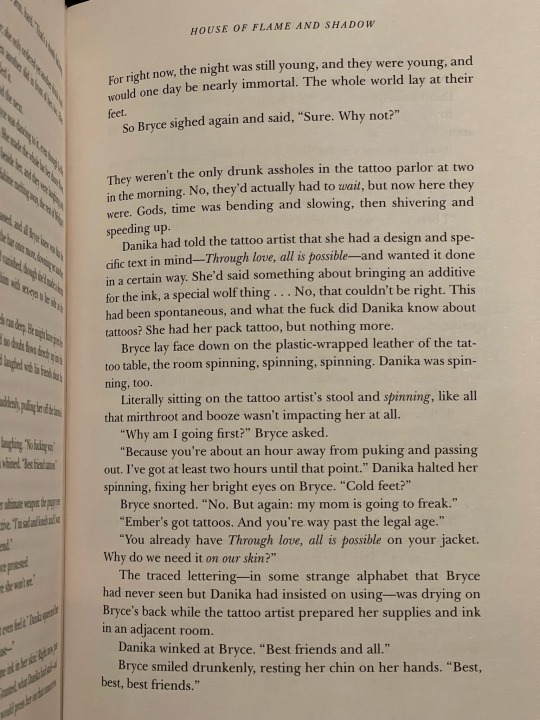
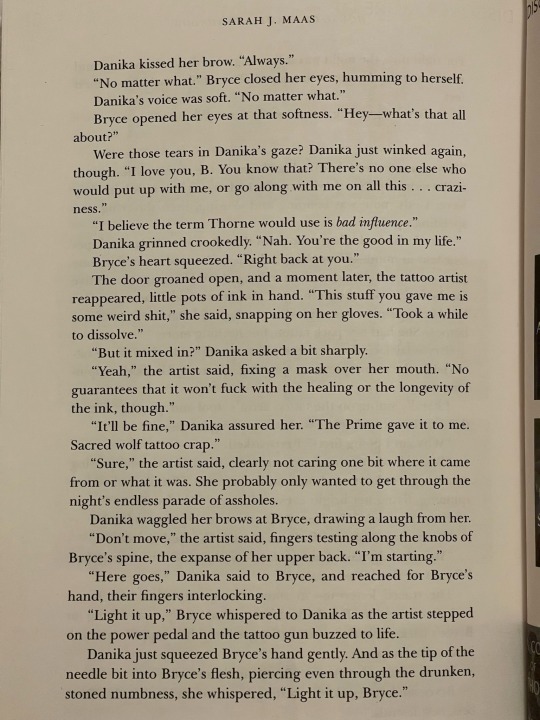
CC3 - HOUSE OF FLAME AND SHADOW - INDIE EXCLUSIVE BONUS CHAPTER - PART 2

“Through love, all is possible.”
582 notes
·
View notes
Text
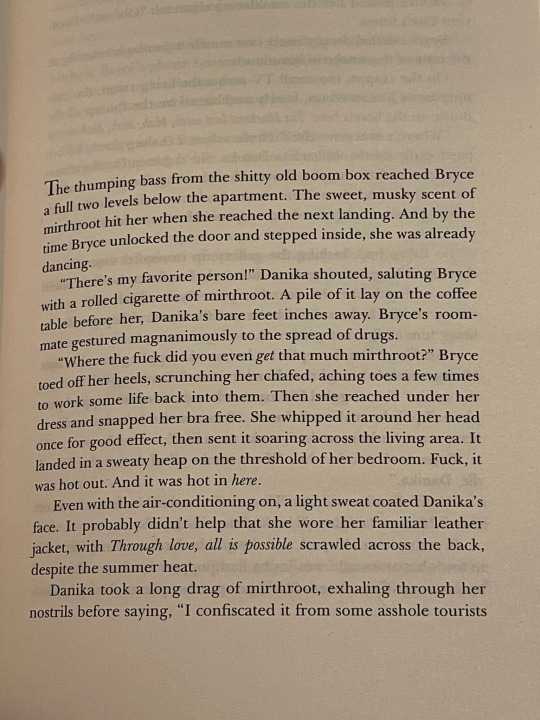
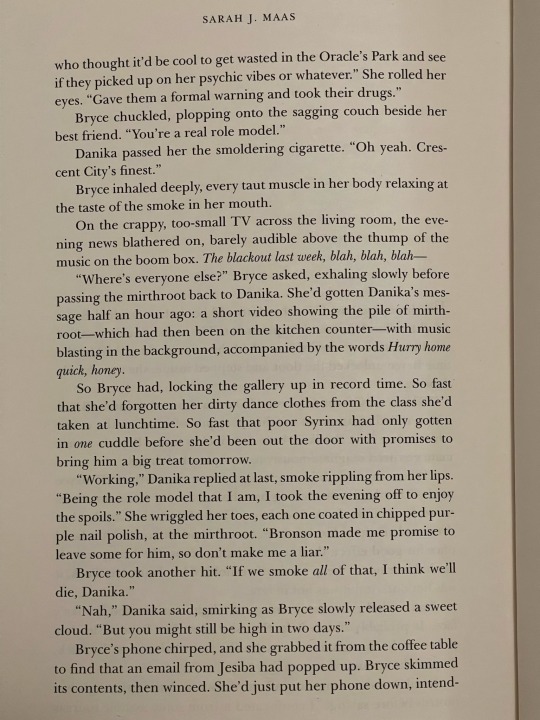
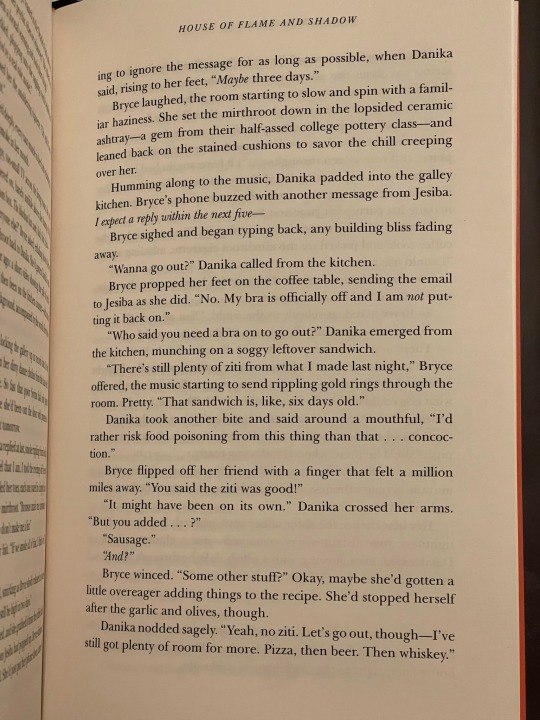

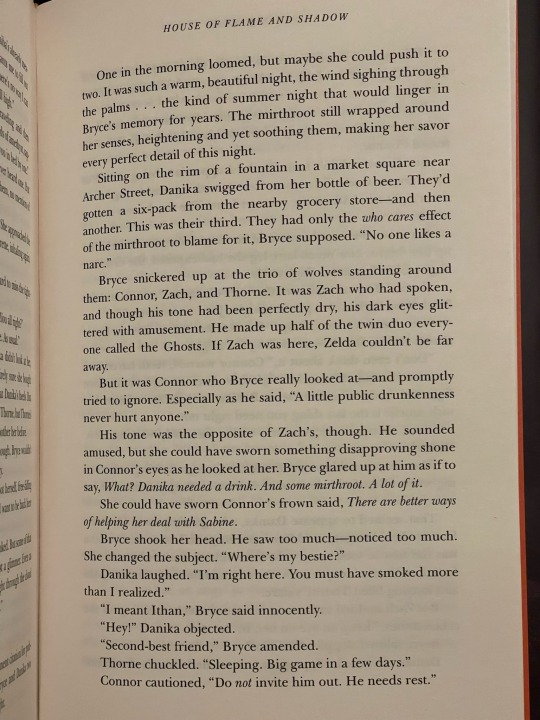
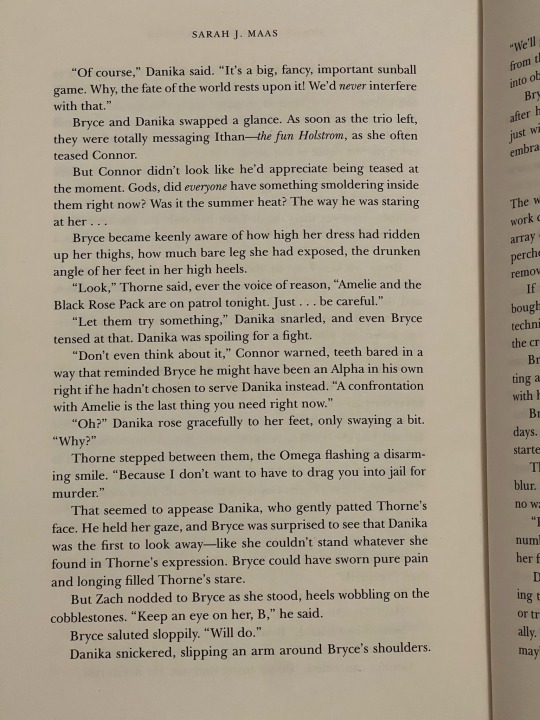
CC3 - HOUSE OF FLAME AND SHADOW -INDIE EXCLUSIVE BONUS CHAPTER - PART 1

LIGHT IT UP ❤️🔥
870 notes
·
View notes
Text
HOFAS Bryce, Nesta, and Azriel Content













Read all of the bonus content at ^
18 notes
·
View notes
Text
May Tarot Challenge - Self Awareness
I wanted to develop a challenge that helps diviners develop core skills that sustain long term practice. Or in less clinical terms, there’s a ton of stuff for newbie card readers but you, my friend, are in this for the long haul. You’re gonna need a strong foundation for when you’re reading cards ten, twenty years from now. This month we focus on self awareness. I have trouble putting into words just how important this skill is. Knowing how your perception is colored and limited is key to giving good readings. A reader needs to have a sense of when their personal bias is creeping into a reading. Just went through a break up? You need to know when you’re projecting that unhappiness onto other readings. Just got a new job? You need to know when you’re feeling unreasonably optimistic given the cards in front of you. For this challenge, you’ll pull two cards. One you select and one you shuffle/draw at random. The goal is to see how closely your perspective of yourself aligns with your deck, to give your deck a chance to check you. Feel to start this challenge whenever you feel like it, well after May even. If you post this somewhere else, please credit me and link to my tumblr if you can. Use the tag “#hillbillyoracle may tarot challenge” for posts so we can all support each other.
1 T – What is your current situation? 2 W – Who are you in your situation? 3 T – What happened leading up to this situation? 4 F – What will happen in the immediate future? 5 S – What is the root of the situation? 6 S – What advice are you getting from gods/spirits/the Universe? 7 M – What talents do you bring to the situation? 8 T – How do the people around you see the situation? 9 W – What are your hopes? 10 T – What are your fears? 11 F – What have you been ignoring lately? 12 S – What should your next action be? 13 S – What lesson are you learning from your situation? 14 M – Who in your life should you make amends with? 15 T – How should you make amends with them? 16 W – What’s the state of your friendships? 17 T – How can you improve them? 18 F – What’s the state of your relationships with family? 19 S – How can you improve them? 20 S – What’s the state of your romantic life? 21 M – How can you improve it? 22 T – What’s the state of your relationship with yourself? 23 W – How can you improve it? 24 T – What’s the state of your relationship with the world around you? 25 F – How can you improve it? 26 S – What the state of your relationship with spirits/gods/The Universe? 27 S – How can you improve it? 28 M – What is holding you back in your spiritual path? 29 T – How can you break free? 30 W – What has changed over the last month? 31 T – What lessons did you take away from the challenge?
512 notes
·
View notes
Text
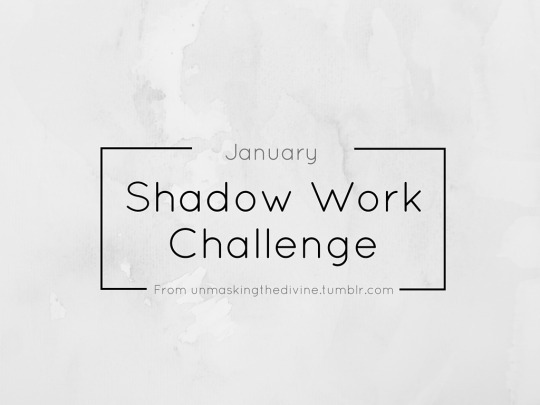
In this shadow work challenge, we will be exploring our past and delving into some of the core experiences that have helped create and reinforce our shadows. Please keep in mind that shadow work is a highly individual process and there is simply no way I could ever devise any sort of curriculum that yields impeccable results for everyone. It is up to you to give this challenge true substance. This is not a set of step-by-step instructions or specified exercises, but a collection of interrelated subjects that form a generic basis for shadow work that you will [hopefully] be able to build off of.
The prompts included were designed to be responded to in one (or all) of the following ways: journaling, creative expression, or tarot reading. I recommend journaling and/or creative expression as the basis with tarot as a supplement, but it can serve as a stand alone tarot evaluation as well (which is why I created this Tree of Life Spread). Whatever works for you, go for it! This challenge is only meant to get your mind reeling, and as you will see it’s pretty cut and dry, so I encourage you to use it as you please– get creative and allow it to evolve as you go.
If you feel comfortable doing so, please share your work and tag “january shadow work challenge”. I for one would love to see it, and I’m sure those who are trying to get their foot in the door with shadow work would appreciate some reference material. In any case, I thank all for participating and as always I welcome public or private feedback!
(P.S. I did not get to work on/edit this as thoroughly as I would have liked, so please forgive me for any errors or sloppy writing in general! Also, feel free to shoot me an ask if you have any questions. Best Wishes and Happy New Year!)
Keep reading
2K notes
·
View notes
Text
Thesis Tales: The Monster Horse
So, I have a story for you. A story about a man and his horse. His very, very strange horse. But, for context I better explain where this all comes from to start with.
I have been utterly silent here on Tumblr for the last several months as I have been writing my Master’s thesis. Now that it is finished, I can return to the lands of the living and participate in society again. However, like some shellshocked hero stumbling out of an Underworld with a collection of stolen goods under one arm, I have returned with stories!
You see, I wrote my thesis on Conall Cernach, someone who is greeted mostly with ‘Who?’ when I talk about him. You probably know his cousin and foster-brother better than him, Cú Chulainn. Since nobody has bothered to really write about Conall in the last, oh…. let’s say ever, I am technically the world expert on him at this point which is both amusing and terrifying. So what better to do with this undeserved position but yell about how cool he is on the internet.
Today, in what I hope to make a semi-regular discussion of what I discovered in my thesis, I’m going to be talking about the monstrous steed Conall Cernach rides, Derg Drúchtach, ‘Dripping Red.’
Keep reading
76 notes
·
View notes
Text
bipolar is just like: here, you get two choices! you get to choose between
being pretty close to being all the way stable - but you are on tons of meds that affect your body, give you brain fog, make you gain weight and cause birth defects. generally drain you of basically everything, but you have stability and strength to be able to keep a relationship and a job.
OR
be completely unihinged. you’ve felt every emotion ever, all the time. none of that shit matters. it’s all about YOU getting “better” which means hooking or selling/doing drugs to get there or almost killing your self countless times! complete instability. BUT you have the capability to feel! even though your brain fucked off, your body feels sharp and ready. you can have children (please don’t - at least until you know they’ll have a stable environment.) and you don’t feel so fucking cloudy and flattened all the time.
also you get a fun little thing we threw in for you - either another mental illness that goes hand in hand with it and the increased probability of addiction
3 notes
·
View notes
Note
Hello. I've been diagnosed with ADHD for nine years of my life but there's been this thought that I might have autism around for as long since a friend of my mother's who works in psychology and knows about these things has seen my test and said "this looks like the test of someone with asperger's" these days (in my early 20s) autism would explain some of the behavior I can't explain with ADHD but I'm very scared to bring it up with any doctors. I can't tell you what I'm scared of only that I am
I can’t tell you what you’re scared of, either, but I can tell you what I was scared of when I was trying to get an ASD evaluation. I was scared that the results would come back saying I was wrong and the answers I thought I had found would suddenly vanish. I was scared I’d be back to struggling to understand myself and I was terrified of the idea of going back to the way things were before.
I was scared that I was making a big deal out of nothing and wasting everyone’s time and that I really was just weird and lazy after all. I was afraid I wouldn’t be able to articulate myself correctly and that I’d be misunderstood and that someone on either side would make a mistake, or that the person I was speaking to would challenge me or just wouldn’t care. Doctors can be very intimidating, especially when they have the power to change your life forever.
It’s not a personal failing to be scared and the way you choose to deal with it is entirely up to you. Nothing says you have to speak to a doctor or pursue an evaluation; if you’re happy with things as they are and want to continue life with just the one diagnosis and never bring ASD up in a professional setting then that’s an option. You may find that learning more about ASD and its coping methods without a formal evaluation is enough for you.
The process of figuring yourself out and then getting diagnosed by a professional can be exhausting, and if you feel you’ve done enough already and are intimidated at the prospect of going through even more, that’s more than fair. The point of a diagnosis is to help you and if it’s all stress with no benefit, that’s not very helpful at all. Sometimes, not putting ourselves through a difficult situation really is the more beneficial choice. Perseverance is admirable, but so is awareness of your needs and limits.
If, on the other hand, you think speaking with a professional about ASD would be beneficial for you, I’d encourage you to give it your best shot. Personally, I wasn’t able to make peace with the possibility of having ASD/ADHD or peace with myself until I received both diagnoses, and while the process was very difficult, the results have been life changing.
If you want to bring it up with your doctor but are afraid to, you may have an easier time writing your thoughts down rather than trying to speak off the top of your head. I personally benefited significantly from preparing a list of symptoms and some articles I wanted to talk about ahead of time. Having something concrete to refer to made navigating through my thoughts much easier, but you could go so far as just writing a letter and handing it to your doctor to read if you’d like.
And if you do decide to bring it up with a doctor, don’t feel pressured to overexert yourself and share everything all at once. Maybe you’d prefer to start by just asking a few questions about ASD or asking if they can refer you to someone who would be able to discuss it in more detail with you. You can start small and work your way up to a more serious discussion, and you don’t have to commit to anything if you change your mind at any point. Go at your own pace, in your own way, just make sure that whatever decision you make is the one that prioritises your needs, whatever they are.
Someone else has previously sent an ask expressing fear over being wrong about their ADHD, which you can find here if you’d like to see my response. You may find it helpful if you struggle with similar concerns. Otherwise, I hope this was able to offer you some sense of peace or direction. Best of luck with whatever you choose, and I hope you can take comfort in the fact that you’re not alone.
34 notes
·
View notes
Note
Hey! I was just wondering if you could tell me what exactly executive dysfunction is? I have severe anxiety and my therapist thinks that's it, but all the stuff on here about executive dysfunction is right on the money. Thanks and your posts are awesome!
To understand what executive dysfunction is, we first need to know what executive functions are. From Executive Dysfunction (Headway):
What are executive functions?
Executive functioning is an umbrella term for many abilities including:
Planning and organisation
Flexible thinking
Monitoring performance
Multi-tasking
Solving unusual problems
Self-awareness
Learning rules
Social behaviour
Making decisions
Motivation
Initiating appropriate behaviour
Inhibiting inappropriate behaviour
Controlling emotions
Concentrating and taking in information
These tasks are all controlled by the frontal lobe of the brain. With that in mind, executive dysfunction refers to the impairment or deficit of these functions, often as a result of a disorder or injury that affects the frontal lobe. From What Is Executive Function Disorder? (ADDitude): “Executive dysfunction is a term used to describe the range of cognitive, behavioral, and emotional difficulties which often occur as a result of another disorder or a traumatic brain injury. Individuals with executive dysfunction struggle with planning, problem-solving, organization, and time management.” It’s also common for children to struggle with executive functions because their brains are still developing.
There are a variety of circumstances in which one may experience executive dysfunction. From Executive Function Disorder (MedicalNewsToday):
Causes
Conditions that can cause executive function issues include:
ADHD
depression and anxiety
bipolar disorder
schizophrenia
obsessive-compulsive disorder (OCD)
autism
Alzheimer’s disease, frontotemporal dementia, and Lewy body dementia
Tourette’s syndrome
traumatic injuries to the brain
Temporary causes of executive function issues can include:
exhaustion
severe pain
stress
distracting environments
drug use
alcohol
severe boredom
In summary: executive dysfunction refers to the impairment of executive functions, which are controlled by the frontal lobe and responsible for motivation, self control, planning, organisation, and other goal-oriented behaviour. Anyone can experience executive dysfunction under certain circumstances (such as snapping angrily at someone when stressed or becoming forgetful when tired), but chronic and persistent difficulties are typically a symptom/result of a disorder or injury.
While not comprehensive, hopefully this is enough to give you a basic understanding of executive dysfunction. I’d recommend giving the linked sources a look for a more in-depth explanation, and there’s always Google if you have other questions about executive functions/dysfunction not answered therein. Glad you’re enjoying the blog and I hope that helps 👍
250 notes
·
View notes
Note
Hi, I recently got an ADHD & autism diagnosis. They said my ADHD was most prominent and I’m kinda still figuring out how that works. Supposedly more routine would help get my stress down, but I have had an internship before where I had 6 weeks of doing the same thing and it made me so miserable. I have never been able to stick with routine. Do you have experience/advice for this? I don’t wanna choose between stress and misery.
It’s true that routine can be simultaneously very helpful and very frustrating for people like us. ADHDers especially (myself included) can often struggle to initiate tasks without external structure to support them while simultaneously feeling as though routine is a hindrance that limits their freedom and forces them into monotony.
As with most things, it may be worth doing some research to see what resources are out there. While it’s a lot of work to sift through them, they might inspire you to try something you hadn’t thought of before. By searching “ADHD and routine” I was able to find this one that offers advice on how to build a routine as a person with ADHD, which seems to have some pretty solid ideas, although some may work better for you than others.
I also like to try to make use of resources such as this one that are written from the perspective of a parent helping their ADHD child. Despite not being written for someone with ADHD themselves, the advice can still be worthwhile, so I try to recontextualise them in my mind as though I’m the in-control parent and my ADHD is the child that just won’t listen.
That being said, I feel like a lot of these resources tend to lack a bit of nuance and don’t often address the pitfalls that I (and I’m assuming other ADHDers) often struggle with and what to do about them. “Do this consistently until it becomes habit” is easier said than done, after all, and I often find myself frustrated with the advice given rather than inspired.
So while I don’t have it entirely figured out yet, I do have some thoughts that have come up over time that may be helpful if you tend to struggle in similar ways that I do.
I’ll start by saying that if you already know that doing the exact same thing consistently makes you miserable, then I wouldn’t consider that a viable option for you, at least not for right now. If the point of routine is to keep your stress down, then it needs to be built in a way that doesn’t just defeat the entire purpose by stressing you out in a different way.
However, I also think that doing the exact same thing consistently isn’t the only way you can establish some routine in your life.
To illustrate, let’s consider the ways my friend and I do groceries. My friend always does his groceries every other Monday morning, and he goes around the store and gets the things he needs based on the order they appear on his list. I, on the other hand, don’t have a consistent day or time that I do my grocery shopping, but what I do have is a specific route through a specific store that I follow to get the same items each time I go.
Notably, we both have a grocery routine that works for us, but the routine aspects manifest in almost completely opposite ways. So with this in mind, I would encourage you to think about what kinds of consistency will be most beneficial to you. How rigid or loose your routine is is up to you, as well as the aspects of it which are routine in the first place.
Additionally, if you’re able to recognise and identify some of the things that cause your stress to build, it might be possible to tailor your routine around helping to eliminate or reduce them.
For example, if you get stressed trying to decide what to prepare for each meal, perhaps designating a time on Sunday to plan your meals for the next week, or in the evening to plan for the following day, would be beneficial. That way you can establish a routine that specifically removes the stressful experience of trying to make decisions and prepare a meal while already hungry.
While the example given may or may not be a problem you personally experience, the same mentality can hopefully be applied to a variety of situations. If you know of a scenario that regularly comes up and causes stress, is there a way to establish a routine that negates it?
I also think it’s important to mention that it’s okay (and even encouraged) to eschew what’s conventional and replace it with what works. While developing your routine, never limit yourself to what’s expected of you just for the sake of doing things the way other people do them. Take some time to think about the limitations in place on your routine and consider whether they’re actual limitations or arbitrary expectations.
For example, my ADHD therapist goes to bed much later than most people and then his days don’t start until noon. That’s his sleep schedule, which is atypical but still consistent, and it’s what works for him. Don’t be afraid to do things in an unusual way if they work within your circumstances and make things easier on you.
Equally important is to remember that establishing a new routine should be a gradual process. Don’t expect yourself to just suddenly completely change your way of life and stick with it; start slow by focusing on just one or a couple simple tasks to turn into a habit, then gradually add more once those become easier to do consistently. If you’re anything like me, trying to set up a whole routine right at the beginning is setting yourself up for failure because it’ll be so intimidating you’ll never actually do it.
Finally, if you’re struggling to stick to a routine yourself, it may be beneficial to externalise some aspects of it. I, like many other ADHDers, have no internal motivation whatsoever, but caring for a dog means that, suddenly, my routine isn’t solely dependent on me. I may not be able to do things at a consistent time for myself, but I can do usually do them when it’s his comfort at stake. Similarly, you could share your routine with friends or family, either so they can hold you accountable or so they can join in on certain activities.
So yeah, apologies for being somewhat ramble-y and disorganised but this is one of those topics that I’m both not super confident in and have a lot of thoughts about. Hopefully some of what I said here was helpful and you’re able to adapt it to suit your own needs. Congrats on your diagnoses and good luck moving forward! It can be a lot to contend with at first, but figuring this stuff out gets easier and more natural with time.
53 notes
·
View notes
